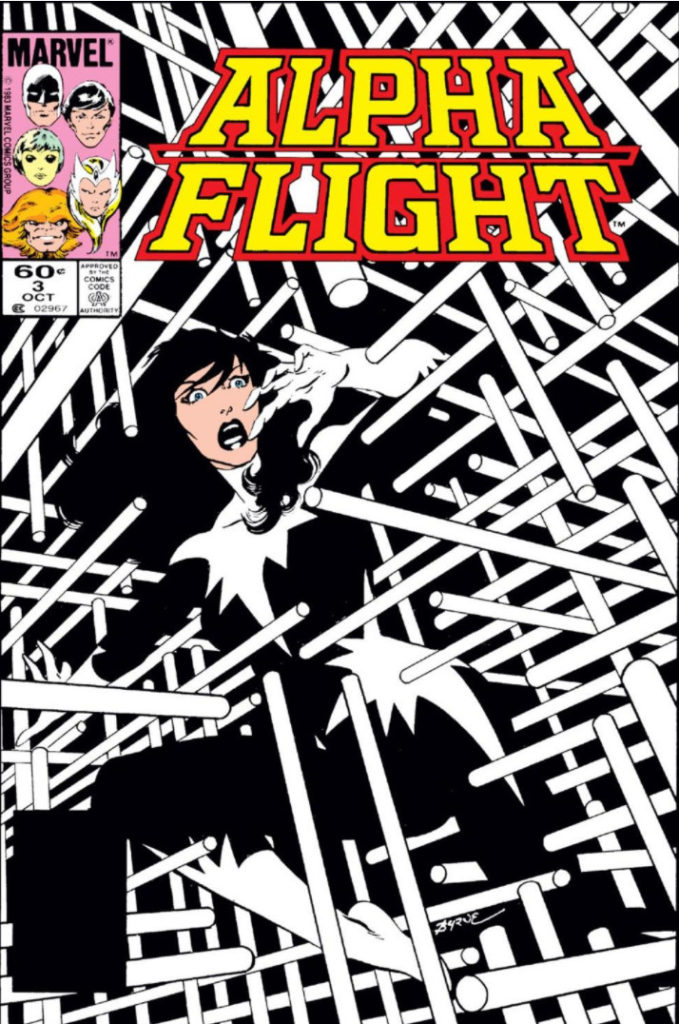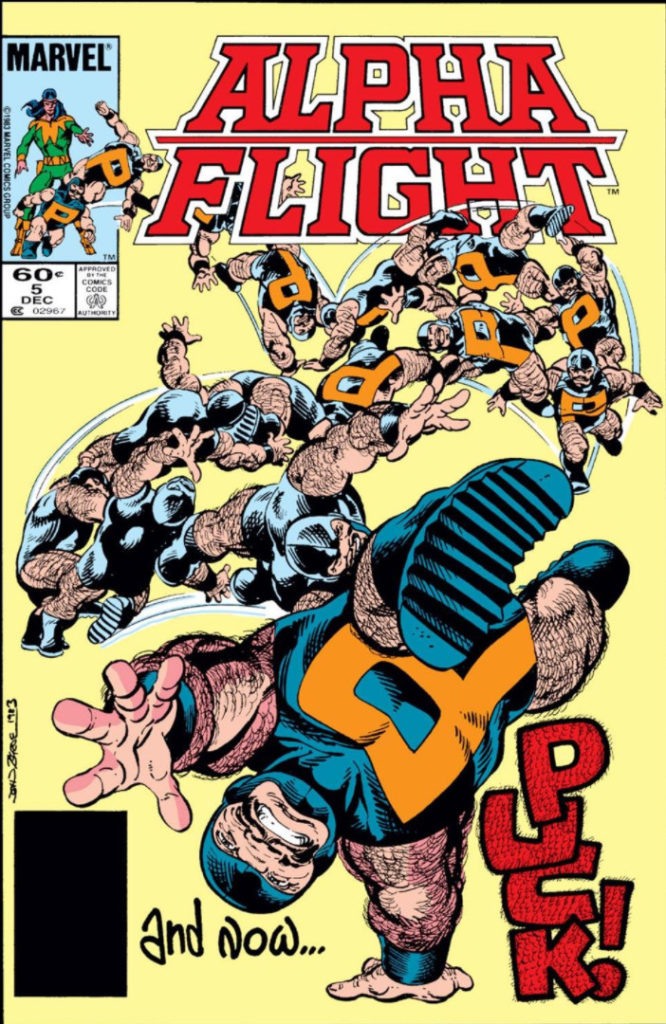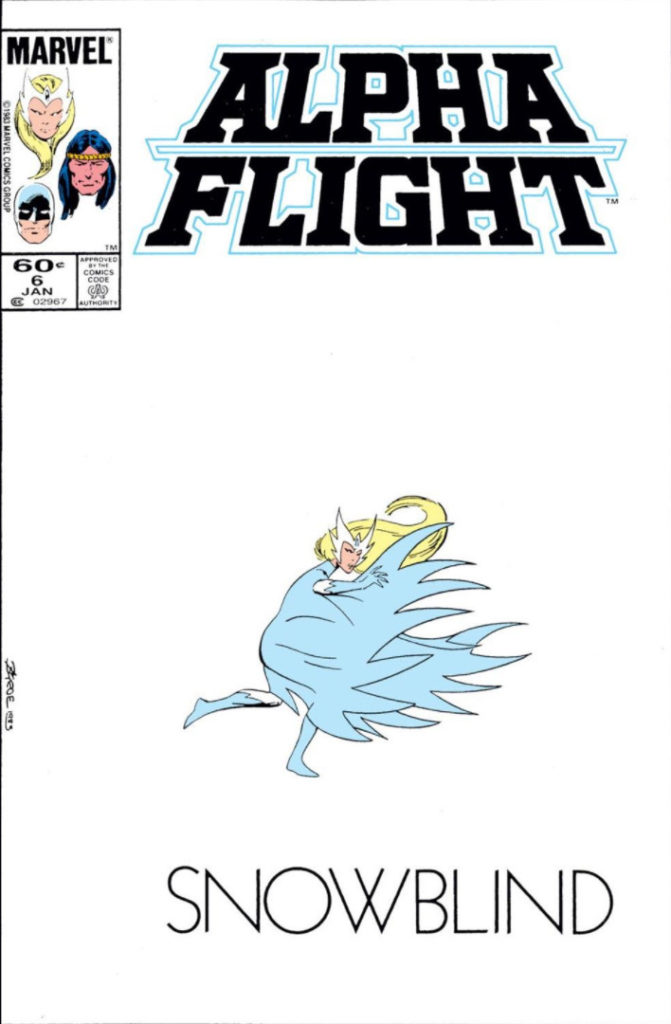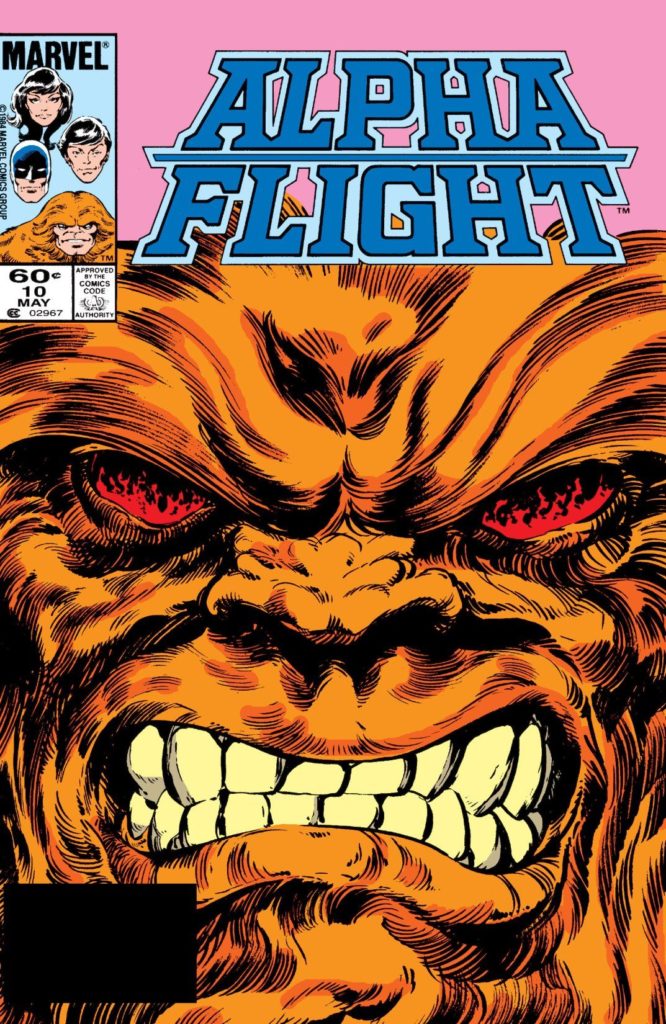I’ve had something of an urge of late, call it nostalgia, call it curiosity about how the material had aged, to revisit the work of John Byrne, one of the most popular comic creators of the 1980s, so I’ve been picking up a bunch of it and trying to put together complete runs (some of it, I’d owned previously and sold, while other books, I still had). As a lot of his stuff can be found in dollar bins still, I’ve made quick work of finishing my Byrne runs of The Incredible Hulk, West Coast Avengers and, yes, Canada’s super-team, Alpha Flight.

So, over the past 10 days or so, I made it through the entire John Byrne Alpha Flight run (1-28 of Volume 1), about half of which I’d bought as they came out, and a few issues of which I’d gotten as back issues over the years before I swooped in on all of ’em recently. It had probably been 30 years or more since I’d read any of it.

How did reading it as a grown-up go? Well, it takes its time getting started, but the story really starts moving around issue 11, by which time Byrne had stopped aping Claremont’s narrative style so much, and finished establishing the backstories and personalities of most of the individual characters. When the whole thing does kick into high gear, it really doesn’t stop moving through the rest of the run. Byrne’s run even ends on a cliffhanger (several, in fact, but one very big one in the last panel), right before he switched books with Bill Mantlo and Mike Mignola and went over to The Incredible Hulk (I’ll be reading those 6 issues next) to wrap up his first run at Marvel.

Beyond that, what I noticed while reading the book was that, while a bunch of things were cringe-worthy in the way that older comics often are when dealing with women, or with pretty much any other part of society that’s underrepresented or othered, there were also a lot more of those people in Alpha Flight (not all of them caricatures, either) than there were in most books of that time period, and, in some cases, this one. The whole thing was this experience of pretty regularly saying “Oh, he totally fucked that up” as I was reading through the issues, then remembering that, between 1983 and 1985, almost no one was even trying to fuck up the subjects in question that John Byrne was dealing with. It’s very far from a perfect series (and in particular, Byrne’s insistence on making almost all the female characters in the book a little younger than he should’ve is vexing and creepy to see now, given the benefit of hindsight, but also pretty far from unique in the genre at the time), but at the same time, it still broke all sorts of ground in mainstream comics that I’m not sure if Byrne’s getting credit for these days. It’s a case of very mixed feelings about the book for me now, which boil down to the question of whether it’s better to try to do representation in fiction and fuck up pretty regularly (and again, I’m aware that people were way less enlightened in the 1980s than we all thought we were at the time, so it’s sort of hard to decide where to set the bar there), or if it’s better not to try at all. I’m gonna lean ever-so-slightly here toward it being better that Byrne tried and fucked up a bunch.

Where the art’s concerned, it was Byrne at or close to his peak (and the covers, as you can see, were particularly amazing on a few occasions, especially in the first year; by the way, thanks/apologies to Marvel Database for the covers I ganked from there, to save myself some scanning), but the paper quality back then did his work (as well as his colorist Andy Yanchus’ work) no favors at all, and there are points in the run where Byrne’s workload seems to catch up with him a little (he was also writing, penciling and inking Fantastic Four at the same time he was doing all 3 on Alpha Flight), but from issue 16 on, he gets assist from Bob Wiacek and Keith Williams on the inks.

Overall, it was definitely worth it to catch up with some old friends, fill in some of the gaps in my memories, and do something of a “Your Childhood Favorites: Were They A Trash Fire?” study on a book that a bunch of us were pretty fond of back then, but I’m not walking away from it feeling like I read great literature, and I don’t know if I’d recommend it to anyone coming in cold on the material. It is definitely a mess in parts, and I don’t think it stands up as an all-time classic by any means, but I’m not sure that it was written to be one, either. I think that, going by both the source material and some background I read in interviews over the past few days, John was just trying to make the best of a story people weren’t going to let him not tell, working with what he knew at the time.